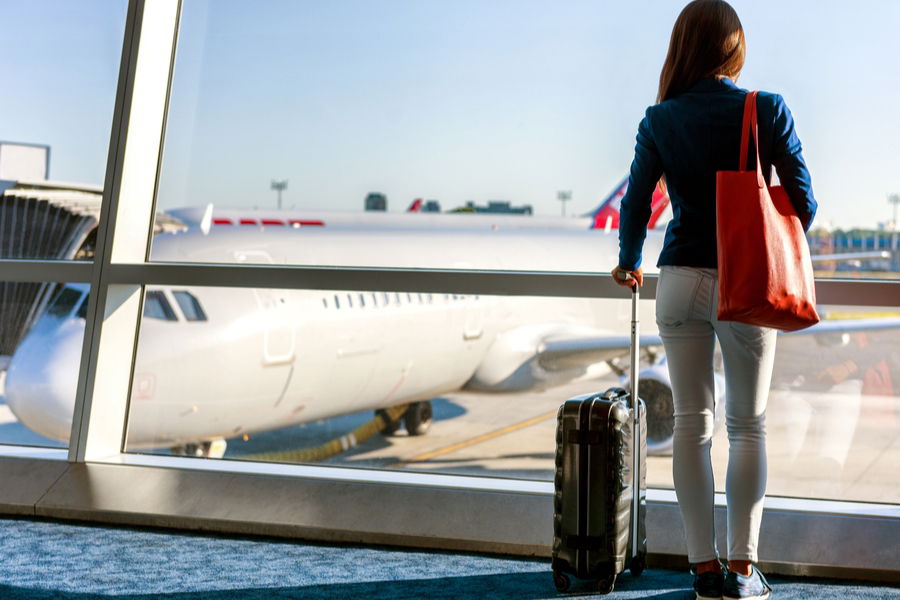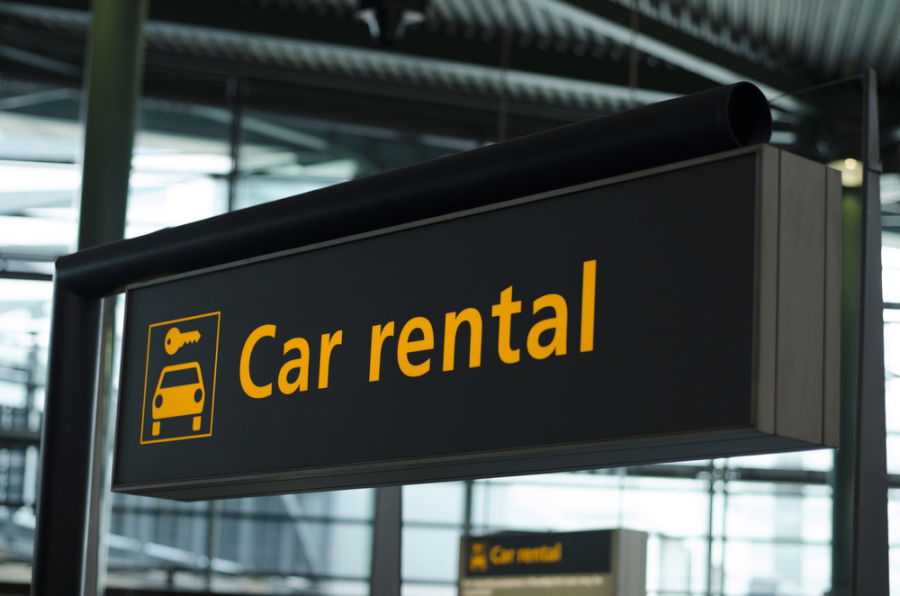Airfare prices can change from one hour to the next, but certain days of the week consistently offer better deals than others. If you’re trying to stretch your travel budget, knowing when to book matters just as much as where you’re going.
Whether you’re planning a family vacation or a last-minute business trip, choosing the right day to book your flight can make a noticeable difference. And with airfare prices rising across the board, even a small saving can add up fast.

In this guide, you’ll find out which days tend to have the lowest prices, what the latest data shows, and how you can use this timing to your advantage.
So, what’s the best day to book a flight?
The idea that flight prices are lower on certain days isn’t just internet folklore—it’s backed by actual data from major travel platforms.
Tuesdays and Wednesdays Still Reign Supreme
According to studies from Google Flights, Hopper, and Expedia, the cheapest days to book flights are usually Tuesday and Wednesday. This trend shows up across both domestic and international routes.
Hopper reports that travelers who book midweek can save an average of 15 to 25 percent compared to those booking on weekends. Expedia’s research found that travelers who booked flights on Sunday saved up to 6 percent on average, but midweek bookings still tend to edge out Sunday savings for most itineraries.
Travel platforms track millions of transactions, and over time, these patterns emerge: airlines often release fare updates early in the week. This creates a short window—typically Tuesday and Wednesday—where prices dip before rising again toward the weekend.
How Flight Prices Fluctuate During the Week
Here’s a general breakdown of how average prices shift day by day:
- Monday – Prices start high as airlines evaluate weekend demand.
- Tuesday – Fare drops begin in response to competitor price changes.
- Wednesday – Often the lowest average prices of the week.
- Thursday – Prices begin trending upward.
- Friday – More expensive due to increased weekend search volume.
- Saturday – Prices may drop slightly, but not consistently.
- Sunday – Popular day for planning trips, which can push prices higher again.
These aren’t hard rules, but they reflect common trends across airline pricing algorithms.
Does the best booking day change based on travel type?
While Tuesdays and Wednesdays are generally the best days to book, there are a few exceptions depending on where you’re flying and why.
Domestic vs. International Flights
Domestic flights usually follow tighter booking windows and more predictable pricing cycles. For most domestic trips, the sweet spot for booking is one to three months in advance—often with the best deals available midweek.
International flights, on the other hand, have more fluctuation based on destination, airline, and season. These flights usually reward early planning, with the best fares found two to eight months out. Midweek still tends to offer better prices, but flexibility is even more important when traveling abroad.
Business Travel vs. Vacation Travel
If you’re booking a business trip, your dates are often locked in—which makes finding the cheapest day to book more challenging. However, companies that travel frequently can still save by booking midweek, even if the travel days fall on peak weekdays.
Leisure travelers have more flexibility, which increases the odds of snagging a low fare. Being open to booking on a Tuesday or Wednesday, flying midweek, or adjusting dates slightly can lead to significant savings over time.
See also: How to Travel on a Budget: 40 Tricks to Get More for Less
Is there a best time of day to book flights too?
Price changes don’t just happen day by day—they also shift hour by hour.
Most airlines update their fares once or twice a day. Historically, early mornings—especially around 6 a.m. to 10 a.m. in the airline’s headquarters time zone—have been when new fares hit the system. That’s often when lower-priced seats become available before others snap them up.
The idea that you should always book flights at midnight is more myth than fact. There’s no universal time when prices drop across the board. Instead, use fare trackers to monitor changes in real-time and book when you see a good deal—especially midweek.
Best Day of the Week to Fly vs. Book
It’s easy to confuse the best day to book a flight with the best day to fly. But they’re not the same—and getting both right can help you save even more.
Booking on a Tuesday or Wednesday often gives you the lowest price, but the day you actually travel matters too. Airfare is usually higher on Fridays and Sundays because of business travel and weekend getaways.
The cheapest days to fly are typically:
- Tuesday: Low demand means lower fares.
- Wednesday: Same pattern—midweek flights tend to be less crowded and cheaper.
- Saturday: While many people prefer to travel on Friday or Sunday, Saturday flights can be a hidden gem for savings.
If you can be flexible on both when you book and when you fly, you’ll have the best shot at scoring a deal.
See also: How to Get Free Flights (Or Nearly Free)
Other Factors That Affect Flight Prices
Flight prices aren’t based on a single variable. Even if you book on the “right” day, other factors can raise or lower your fare.
Seasonality and Holidays
Peak travel seasons always drive prices higher. That includes summer break, spring break, Thanksgiving, Christmas, and long weekends.
If your travel dates overlap with school vacations or major holidays, even midweek booking won’t help much. Airlines know demand will be high, so they raise prices across the board.
Traveling during shoulder seasons—early spring or late fall—can give you better deals, especially if you’re booking flights midweek and avoiding major events.
How Far in Advance You Book
Timing matters almost as much as the day of the week.
For domestic flights, the ideal booking window is usually 1 to 3 months in advance. For international flights, aim for 2 to 8 months.
Booking too early or too late can both cost you. Prices often drop when you’re in the sweet spot—far enough out to get availability, but close enough that airlines start offering competitive fares.
Airlines’ Dynamic Pricing Algorithms
Airlines use dynamic pricing to adjust fares based on demand, seat availability, and even your browsing behavior.
Searching the same route multiple times can trigger price increases if the system sees repeated interest. That’s why prices sometimes “mysteriously” go up after you’ve searched a few times.
To avoid this, always search in private or incognito mode. Or use different devices or browsers if you’re comparing flights over several sessions.
Tips to Always Get the Best Airfare—No Matter the Day
You can’t control everything about flight prices, but you can stack the odds in your favor. Here’s how:
- Set price alerts: Use tools like Google Flights or Hopper to track prices and get notified when fares drop.
- Search in private mode: Use incognito windows to prevent price hikes based on repeated searches.
- Compare platforms: Check airline websites, Google Flights, Expedia, Skyscanner, and others to find the lowest price.
- Book midweek, fly midweek: This simple combo still delivers the best overall savings.
Final Thoughts
If you want the lowest price, your best bet is to book your flight on a Tuesday or Wednesday and plan to fly on one of those days, too. But timing is just one piece of the puzzle.
Use price tracking tools, search privately, and be flexible with your dates. When you stack these habits together, you won’t just save a few bucks—you could cut your airfare in half.
Try using fare trackers today and set alerts for your next trip. Small tweaks in when you book can lead to big savings.
Frequently Asked Questions
Is it cheaper to book one-way or round-trip flights?
In most cases, round-trip flights are cheaper than booking two one-way tickets. Airlines often offer discounts when you book both legs together. However, it’s still worth comparing both options—especially for international travel or with budget carriers—since some routes have better pricing when booked separately.
Do flight prices go down closer to the departure date?
Last-minute deals exist, but they’re not reliable. For most travelers, prices tend to increase as the departure date gets closer. Airlines know that last-minute travelers are often less price-sensitive, so they raise fares accordingly. Booking early—especially during the recommended windows—is usually safer and cheaper.
Does the day you search for a flight matter?
Yes, it can. Prices can fluctuate depending on when you search, and repeated searches may trigger fare increases on some sites. That’s why using incognito mode or clearing your cookies can help you avoid paying more. Setting up price alerts is also more effective than checking manually at random times.
Are budget airlines always cheaper than major carriers?
Not always. Budget airlines often have lower base fares, but they add fees for bags, seat selection, and even printing your boarding pass. Once you factor in those extras, a major airline might end up being the better deal—especially if it includes checked bags or other perks in the ticket price.




